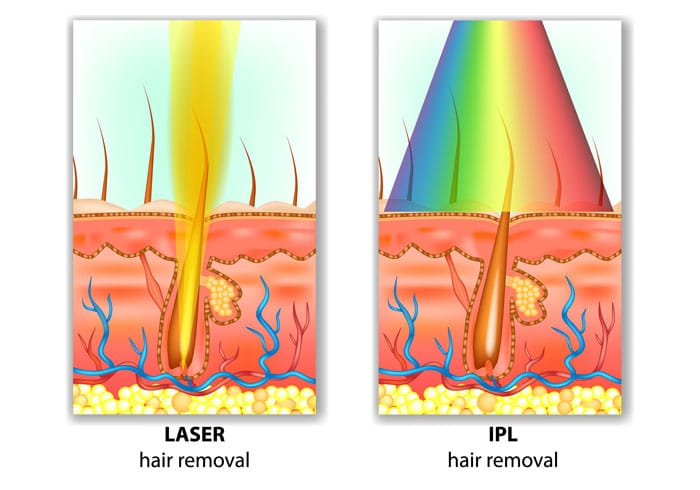PCOS and Hair Loss: Is There a Connection?
By Kimberly Vaughn, Clinical Trichologist, Certified Nutritional Coach,
Chief Hair Loss Coach and President of HPIHair Partners
Polycystic Ovary Syndrome (PCOS) affects a significant percentage of women, but many have never heard of it. Even those who have been formally diagnosed with it are often unaware that hair loss is one of its most common symptoms.
The hair loss that women with PCOS experience can be either male-patterned hair loss (MPHL) or female-patterned hair loss (FPHL). MPHL involves loss of hair at the temples and front hair line, as well as sometimes on the crown. FMPL, which can also be present in men, is diffused across the entire scalp.
How can you find out if your hair loss is due to PCOS?
You would need to be diagnosed by a gynecologist or general practitioner. “A pelvic exam is important to rule out ovarian tumors, but the cysts often seen in patients with PCOS will not usually be felt on exam,” says Dr. Jack Monaco, founder of The Nashville Hormone & Integrative Medicine Center in Nashville, Tennessee. “Laparoscopic visualization of the pelvic organs demonstrates a characteristic appearance of the ovaries but is not routinely done for diagnosis. But it may be done if other gynecologic issues are present.”
But here are some of the other symptoms that frequently come with PCOS:
- Besides thinning hair, women often experience the opposite in other parts of the body—excessive hair growth on the chin, other parts of the face, arms, and abdomen. It grows at such a rapid rate that tweezing or shaving won’t work. It also tends to be dark and coarse. If the hair is brown or black, laser hair reduction can be a good option to get rid of it.
- Irregular, heavy, or infrequent menstrual periods.
- Acne on the face, back, and chest.
- Obesity and difficulty losing weight.
- Infertility.
- Dark patches on the skin.
It’s also common for women with PCOS to be diagnosed with diabetes, pre-diabetes, and/or a thyroid disorder. No one is exactly sure what causes PCOS, although researchers believe it’s usually a combination of genetic and environmental factors.
In fact, animal studies suggest that in some cases, it may begin as a result of genetic or chemical changes in the womb. “The exact cause is not known, but it is clearly a hormonal condition,” Dr. Monaco says. “The classic PCOS patient is obese and has blood sugar and insulin abnormalities and high blood pressure. There is a variant of PCOS, however, where the patients are thinner and may have only acne or facial hair as their presenting symptoms.”
Testing for PCOS
PCOS is generally diagnosed through extensive testing.
First, an ultrasound is performed to look for ovarian cysts. However, the absence of cysts doesn’t necessarily mean the absence of the syndrome. In some women, there are no cysts at all, while others will have cysts that come and go, as their hormone levels and menstrual periods regulate for months at a time. For these reasons, PCOS is an exceedingly complicated disease.
Besides an ultrasound, a battery of tests should be done to make a diagnosis and determine the root cause. This is because PCOS may be attributed to elevated testosterone levels, thyroid malfunction, adrenal gland malfunction, diabetes/pre-diabetes, and/or poor ratio of beneficial to harmful bacteria in the gut.
“Testing to make the diagnosis of PCOS includes blood testing for testosterone levels, blood sugar and insulin resistance, and adrenal hormones, both salivary and blood,” according to Dr. Monaco. “Pelvic ultrasound and thyroid hormones will also be helpful,” he says.
Therefore, the evaluations include:
- Total testosterone test. Bear in mind that some women with PCOS have seemingly normal testosterone levels. In this case, the problem is often abnormal sex hormone binding globulin, which carries testosterone around in the body. If that’s the culprit, testosterone levels may need to be reduced below what is considered normal.
- Full battery of thyroid function tests.
- Adrenal function test called the 17-hydroxyprogesterone test (17-OHP), which is performed early in the morning after fasting.
- Hemoglobin-A1C test and glucose challenge test to check for diabetes and pre-diabetes. • Gut and stool tests to determine the health of the microbiome/gut.
- Epigenetic hair follicle test to uncover underlying health concerns and get to the cause of both hair loss and excessive hair growth.
Treating PCOS
Unfortunately, there is no cure for PCOS, so treatment is focused on managing the symptoms.
“While there is no specific “cure” there are many options for the PCOS patient, such as Berberine and Metformin to regulate blood sugar and insulin resistance/metabolic syndrome, Inositol which influences the actions of insulin, adrenal support, and diet and carbohydrate restriction,” Dr. Monaco says.
The most common medication given is birth control. It takes over the function of the ovaries and helps to regulate female hormones, as well as testosterone levels. However, this alone may not be enough to curb symptoms.
If diabetes, thyroid malfunction, or adrenal malfunction are found to be root causes, those diseases must be treated individually. For example, as Dr. Monaco mentioned, Metformin (also called Glucophage) may be prescribed for a diabetic or pre-diabetic condition to regulate blood sugar. In some cases, this medication also regulates hormone levels.
Weight loss or weight management is often part of the treatment plan, although researchers are uncertain if obesity is caused by PCOS or if PCOS causes obesity. If acne is a symptom, it may be treated by a dermatologist.
Do any of these treatments help to curb thinning hair or the excessive hair growth on other parts of the body?
Yes, they can help. Scalp treatments that stimulate blood circulation on the scalp can encourage growth. Meanwhile, efforts to reduce testosterone levels, which are usually responsible for excessive hair growth, can reduce unwanted hair.
Of course, any hair that is already on the face and body must be removed through procedures like laser hair reduction, which can usually kill the hair follicle with about eight treatments. Without lowering testosterone, however, the hair will continue to grow despite laser treatments, which can be expensive if they have to be repeated regularly.
Additionally, diet and exercise can potentially help with all symptoms of PCOS from hair loss and hair growth to irregular periods, blood sugar, insulin levels associated with diabetes and pre-diabetes, obesity, and poor gut health.
Nutrition management must be individualized, though. There is no one-size-fits-all diet. Therefore, it’s important to work with a registered dietician who has experience with PCOS.
If you have hair loss accompanied by irregular, heavy, or infrequent periods, or if you have hair loss along with excessive hair growth on the face and body (as well as any of the other symptoms mentioned in this article), please look for a gynecologist or general medical doctor with experience diagnosing and treating PCOS.
Social media groups are available to help you find referrals in your area. A doctor knowledgeable about this disease can guide you with an individualized treatment plan based on your test results. It’s also recommended to see a Certified Trichologist to specifically treat your hair loss and excessive hair growth.







